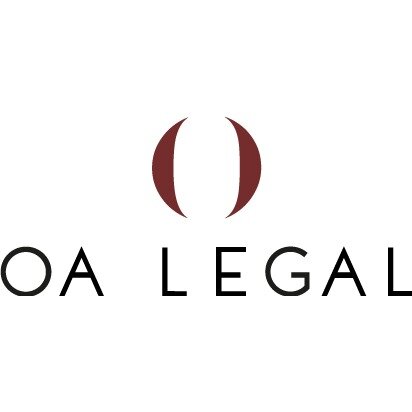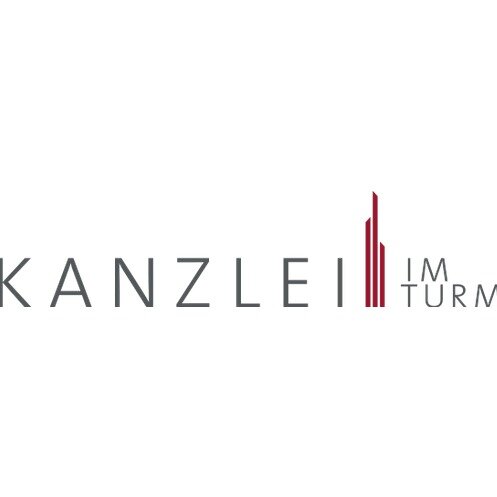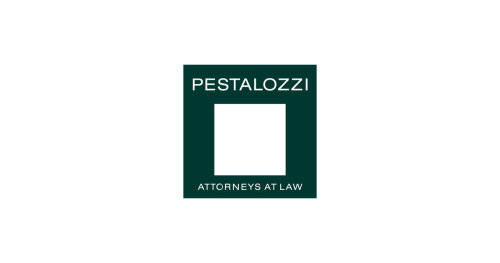Best Structured Finance Lawyers in Switzerland
Share your needs with us, get contacted by law firms.
Free. Takes 2 min.
Or refine your search by selecting a city:
List of the best lawyers in Switzerland
About Structured Finance Law in Switzerland
Structured finance refers to complex financial instruments and arrangements that are designed to meet specific financing needs of large companies, financial institutions, or government entities. In Switzerland, structured finance involves the customization of financial products, such as securitizations, covered bonds, and asset-backed securities, to facilitate large-scale investments, risk management, or capital raising. Swiss structured finance law encompasses the legal and regulatory frameworks that govern these tailored financial solutions, ensuring they align with both local and international standards.
Why You May Need a Lawyer
Structured finance transactions are often intricate, with multiple parties involved and significant legal considerations. Here are some common situations where you may require legal help in structured finance:
- Designing and structuring a securitization transaction to raise capital for your business
- Negotiating terms of asset-backed securities or covered bonds with potential investors
- Ensuring compliance with Swiss financial market regulations and licensing requirements
- Reviewing and drafting legal documentation, such as offering memoranda and transaction agreements
- Managing cross-border aspects of financing when international assets or parties are involved
- Addressing regulatory inquiries or investigations by Swiss financial authorities
- Assessing the legal risks associated with new or innovative structured financial products
Given the complexity and significance of structured finance deals, legal guidance can protect your interests and ensure smooth, compliant transactions.
Local Laws Overview
The Swiss legal landscape for structured finance is shaped by several important statutes and regulatory bodies. Key aspects include:
- The Swiss Code of Obligations (CO): Governs contract law, which forms the foundation for negotiated instruments and agreements in structured finance.
- Swiss Financial Market Infrastructure Act (FMIA): Establishes rules for market conduct, derivatives trading, and investor protection relevant to structured finance transactions.
- Swiss Financial Services Act (FinSA) and Financial Institutions Act (FinIA): Regulate the provision of financial services and licensing of financial intermediaries.
- Role of FINMA: The Swiss Financial Market Supervisory Authority (FINMA) oversees market participants, implements prudential standards, and approves certain structured products.
- Bankruptcy and insolvency laws: Ensure that asset-backed structures are properly ring-fenced from the originator's insolvency risk through bankruptcy-remote entities.
- Data protection and cross-border rules: Must be followed when transactions involve non-Swiss assets or investors.
Switzerland is recognized for its stability and robust legal framework, but compliance with its detailed and sometimes evolving regulations is crucial for anyone engaging in structured finance.
Frequently Asked Questions
What types of structured finance transactions are common in Switzerland?
The most common types include securitizations of receivables, covered bonds, structured notes, collateralized loan obligations, and repackagings using special purpose vehicles (SPVs).
Do I need approval from Swiss authorities to execute a structured finance deal?
Certain transactions may require notification or approval from FINMA, especially if public offerings or regulated activities are involved. Private placements or transactions may have lighter requirements, but legal review is advised.
Can foreign assets or entities be included in Swiss structured finance deals?
Yes, cross-border deals are possible, but they must conform to Swiss regulatory standards and may require additional legal structuring to address potential tax or compliance issues.
Are there any restrictions on investors who can buy structured finance products?
Switzerland has investor protection rules set out by FinSA, restricting the sale of certain products to qualified investors and imposing disclosure obligations to safeguard retail investors.
What are SPVs and why are they important in structured finance?
Special purpose vehicles (SPVs) are separate legal entities used to isolate assets and risks. They are vital in Swiss structured finance to achieve bankruptcy remoteness and protect investors.
How are structured finance products taxed in Switzerland?
Taxation depends on the structure, underlying assets, and the parties involved. Swiss tax authorities may treat certain vehicles as transparent or opaque, affecting withholding taxes and income allocation.
What documentation is required for structured finance transactions?
Key documents include offering memoranda, purchase agreements, servicing agreements, trust deeds, security documentation, and regulatory filings where applicable.
How does Swiss law handle investor protections in structured finance?
Swiss regulations require transparency, disclosure of risks, segregation of assets, and adherence to suitability tests for offers to retail investors. FINMA actively supervises compliance with these standards.
Are there reporting or ongoing compliance obligations?
Yes, certain structured products are subject to periodic reporting, financial disclosures, and ongoing compliance with anti-money laundering and investor protection regulations.
Can structured finance help with risk management?
Absolutely. Many companies and financial institutions use structured finance arrangements to transfer, diversify, or manage risks that would otherwise remain on their balance sheets.
Additional Resources
If you are seeking more information or assistance related to structured finance in Switzerland, the following resources may be of value:
- Swiss Financial Market Supervisory Authority (FINMA) - The main regulatory body for financial market supervision and approval of structured products.
- Swiss Bankers Association (SBA) - Provides guidelines, commentary, and industry updates relevant to banking and structured finance.
- Swiss Financial Services Standards Association (VQF) - Sets rules and offers compliance guidance for financial intermediaries.
- Swiss Federal Tax Administration (FTA) - Issues guidance on tax matters relating to financial products and transactions.
- Legal and accounting firms specializing in banking and finance law with Swiss expertise.
Next Steps
If you believe structured finance solutions may benefit your business, or if you are planning a transaction involving complex financial arrangements in Switzerland, consider the following steps:
- Assess your needs and the types of financing arrangements that might suit your objectives.
- Consult with a Swiss lawyer who specializes in banking, finance, and capital markets law. They can conduct a legal feasibility assessment tailored to your transaction.
- Gather relevant documents and prepare a summary of your transaction plans and objectives for your legal advisor.
- Review regulatory obligations, potential approvals, investor requirements, and tax impacts with your legal and financial team.
- Engage with regulatory authorities, if necessary, to clarify any requirements or obtain pre-transaction feedback.
- Start drafting and negotiating the agreements needed to successfully structure and launch your finance transaction.
Structured finance in Switzerland offers significant benefits but requires careful planning and compliance. With the support of qualified legal professionals, you can navigate the legal landscape confidently and realize your financial goals.
Lawzana helps you find the best lawyers and law firms in Switzerland through a curated and pre-screened list of qualified legal professionals. Our platform offers rankings and detailed profiles of attorneys and law firms, allowing you to compare based on practice areas, including Structured Finance, experience, and client feedback.
Each profile includes a description of the firm's areas of practice, client reviews, team members and partners, year of establishment, spoken languages, office locations, contact information, social media presence, and any published articles or resources. Most firms on our platform speak English and are experienced in both local and international legal matters.
Get a quote from top-rated law firms in Switzerland — quickly, securely, and without unnecessary hassle.
Disclaimer:
The information provided on this page is for general informational purposes only and does not constitute legal advice. While we strive to ensure the accuracy and relevance of the content, legal information may change over time, and interpretations of the law can vary. You should always consult with a qualified legal professional for advice specific to your situation.
We disclaim all liability for actions taken or not taken based on the content of this page. If you believe any information is incorrect or outdated, please contact us, and we will review and update it where appropriate.
Browse structured finance law firms by city in Switzerland
Refine your search by selecting a city.
















